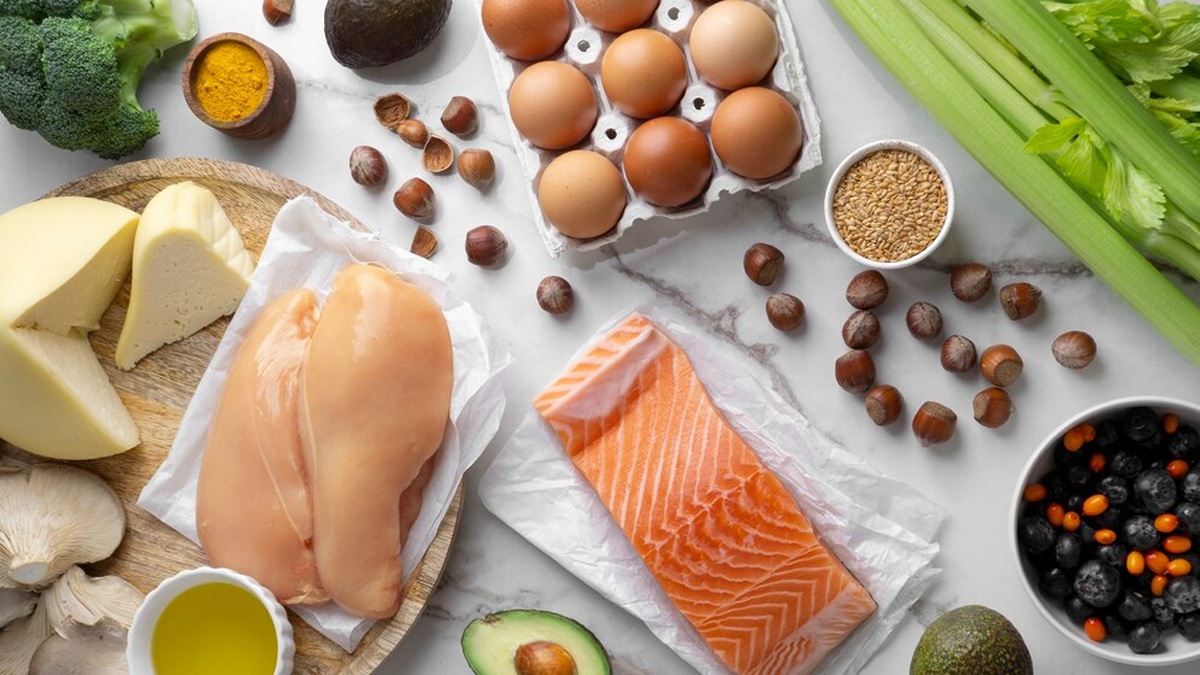
Proteins are an essential part of a balanced diet. Not only does it help increase muscle mass and strength, but it also reduces cravings and aids in weight loss. Interestingly, proteins are also known to lower blood pressure levels, which is one of the leading risk factors of heart diseases and stroke. A study published in the Journal Hypertension found that adults whose diet included a significant variety of protein sources minimise the risk of developing high blood pressure that those who did not include the same in their diet. Therefore, in this article, we list down some of the most nutritious proteins you can incorporate into your daily diet.
Fatty Fish

Fatty fish like salmon, mackerel, trout, and sardines are a rich source of protein and also high in omega-2 fatty acids, known to support heart health. According to a recent meta-analysis published in the Journal of the American Heart Association (JAHA), people with hypertension who consumed 3 grams daily of both EPA and DHA omega-3s experienced an average of 4.5 mm Hg decrease in systolic blood pressure (SBP).
Also Read: Improve Heart Health With Omega-3 Fatty Acids: Foods To Eat And When To Switch To Supplements
Eggs
Eggs are a good source of high-quality protein. While they do contain some cholesterol, current research suggests that moderate egg consumption - around 1-2 eggs per day - is not associated with increased risk of heart disease for most people.
Speaking with the OnlyMyHealth team, Dr Edwina Raj, Head of Services-Clinic Nutrition and Dietetics, Aster CMI Hospital, Bengaluru, says, eggs too contain high amounts of cholesterol, but they are not unhealthy and are different from the cholesterol present in foods, such as those high in trans fats and saturated fats.
Legumes
Legumes, such as beans, lentils, and peas are excellent sources of plant-based protein. They are also high in fibre, potassium, and magnesium, which can help regulate blood pressure. A 2011 study recommended that 1000 mg of magnesium be combined with 4.7 g of potassium and less than 1.5 g of sodium per day through both diet and supplements to maximise BP reduction. However, when it comes to health, speaking with a professional or a doctor is essential.
Tofu

Soy-based products like tofu are great sources of vegetarian protein and because they are low in saturated fat, they can prove beneficial for heart health and people who have hypertension. In addition, tofu contains tyramine, an amino acid that helps balance blood pressure levels in the body, as per WebMD.
Nuts And Seeds
Almonds, walnuts, flaxseeds, and chia seeds are known for their heart-healthy benefits. Since they are rich in healthy fats, fibre, and potassium, they are said to manage blood pressure and blood cholesterol levels, both of which are the leading risk factors of cardiovascular ailments.
Also Read: Magnesium Deficiency: Warning Signs Of Low Magnesium Levels
Quinoa

Quinoa, also known as a super grain, is a complete protein and a great alternative to refined grains. It's high in fibre, antioxidants, potassium, and magnesium, which not only make it a heart-healthy choice, but also beneficial for those with diabetes and seeking weight loss.
Bottomline
Incorporating heart-healthy proteins into your diet is a smart move for managing high blood pressure and promoting cardiovascular health. Choosing lean protein sources like fish, legumes, and tofu, while minimising saturated fat intake, can help reduce hypertension risk. Additionally, these protein-rich foods are also packed with nutrients such as omega-3 fatty acids, fibre, potassium, and magnesium, all of which play a crucial role in maintaining healthy blood pressure levels and promoting overall heart health.







